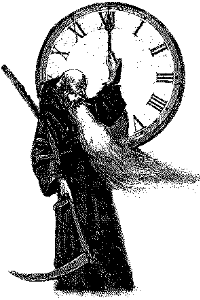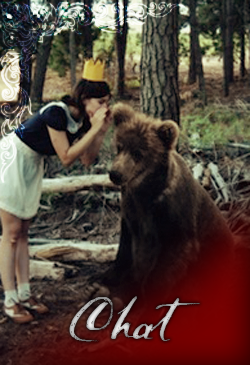Post by ISMAEL MULHOLLAND on Aug 20, 2012 23:15:37 GMT -5
... ismael noah mulholland *
* “What is it, then, between us?
What is the count of the scores or hundreds of years between us?
Whatever it is, it avails not—distance avails not, and place avails not.” – Walt Whitman*
[/size]* “What is it, then, between us?
What is the count of the scores or hundreds of years between us?
Whatever it is, it avails not—distance avails not, and place avails not.” – Walt Whitman*


...basics*
name Ismael Noah Mulholland (Iz-mai-EHL)
nickname Too many. He’s been called so many things. Chronos might be his favorite. He likes the roundness of the word.
age Nineteen
gender Male
grade Taking a gap year before university while he sorts himself out.
hometown Everywhere. Anywhere. He doesn’t know where he was born. He’s been a lot of places, seen a lot of things, a lot of hometowns, a lot of people being born and people dying. It all gets kind of jumbled up with his own life, so much so that he doesn’t really remember where he specifically is from anymore. However, he grew up in Peterborough, New Hampshire.
sexuality Decidedly and permanently ambiguous. He doesn’t consider love to be a gendered thing, but considering he’s never been in it, he can’t really say.
personification Father Time
status AWAKE
face claim Eddie Redmayne
...appearance*
hair color A sort of varied brownish color that looks red when the light hits it right. Almost always messy.
eye color His right eye is green, his left eye is hazel. Sometimes they look a little different in other lights. They have a distinct age about them that is vastly in contrast with the rest of his face.
build A little on the gangly side. Best described as awkwardly graceful, and rather unnaturally skinny.
height 5’11”
clothing style He likes old things and comfortable things. If he can mix them, that’s fun. Most of the time, he’s wearing at least one old thing, and he always carries his gold pocketwatch, and often an hourglass something-or-other.
distinctive traits Freckles. Freckles everywhere. He also moves with a sort of jerky grace; his joints hurt almost all the time and he gets headaches, so while he often seems to glide when he walks, it’s a somehow painful-looking glide.
...personal*
personality
sometimes he wishes he wasn’t so unstuck, sometimes he thinks maybe it would be better if he could be stuck, if he could live one life instead of all these existences he crosses, all these lives on which he intrudes, all these times and places he’s remembering and forgetting, smells that remind him of smells he’s never smelled or afternoon picnics he’s never been to or the aftershave used by a lover he never had, but that’s the way things are for him, he is unstuck, unstuck in time, like that character in a book he once read only it’s not just his timeline, never just his timeline, never just his life out of order, but everyone’s life out of order, people being born and dying and living and eating and procreating and reading books and writing books and making art, he has been so many places, too many places, he has lived his own life in several orders, he has lived other people’s lives alongside them as he has walked in and out of their important and unimportant moments (of course he considers every moment important), he has been doing this for what feels like forever, he doesn’t know another way to be but sometimes he wishes he wasn’t quite so unstuck.
all the wandering has made him very old, he’s lived so long for nineteen years, he’s lived for centuries and longer but his present where the rest of you are is age nineteen, he has no present, there is no now, there is no then or soon or later, it all stirs up together in a big stream of his own consciousness, he has a watch he carries with him always, it’s different than other watches, it tells him where he is so he doesn’t have to ask, asking makes him stand out, he doesn’t ask where he is unless he has to, the old man gave him the watch, the old man that is him, with the scythe and the cloak and the long white beard, the old man with the hourglass that has become him, they are not separate anymore, they do not know how to be separate, there is the old man and there is him and they are the same, he doesn’t mind that, he thinks he would be very boring without the old man part of him, without his walking around in time, he doesn’t control where he goes, he just goes places, the old man told him once that maybe he would get better at it someday, he likes hourglasses, he likes clocks, he likes watching himself pass in other people’s faces, he likes old things and new things, he likes moments that people think are boring because they seem to last the longest, he likes long things, he doesn’t mind the constant ticking sounds in his head, he’s gotten used to them, they plague him constantly and give him headaches but he doesn’t know how to stop them so he just stopped minding.
he’s too wise, much too wise, people sometimes don’t like it, especially when they talk to him as a young man, they don’t always, sometimes he’s older or younger than nineteen, nineteen is just how old he is in your present, but not in everyone’s, not even his own all the time, he is an enigma, permanently out of place, he has seen so much and learned so much that it has made him both weary and experienced, very much like an old book that has been re-bound many times, with scribbled notes in different colors and handwriting styles in various margins, pictures on the blank pages, highlighted sections of text.
it’s hard for him to speak like stuck people, like people who only have their linear time while he has all this wibbly wobbly inconsistency, he knows and sees everything that will ever happen, sometimes the moments in time cross over and he can feel things that have happened before in places where he is, sometimes he can see or smell the people that walked here before or will walk here after, the knowledge isn’t permanent, he has to be somewhere to feel its age and future, he can’t tell someone what was happening in a specific village in Germany in the 1600s because he isn’t there right now to look at things and touch things and smell things and hear things from before and after now, it’s a strange process, he’s spent almost all his life with it and he still doesn’t quite know all the rules, but he thinks maybe he’ll learn, either way he takes most everything in stride, he likes living no matter where he is, he is almost never angry, he is always sort of calm, neutral, content, he likes to laugh and smile and be happy so he is, even if there are sadder parts to him, like how nothing really excites him anymore because he’s seen and done so much, like how he is so conscious of his singularity in space and time.
he likes words, he likes the way words fit together, his thoughts aren’t like other people’s thoughts, he thinks in different colors and comparisons, when he writes it down people call it poetry, he doesn’t just write that way but speaks that way too, people always ask him if he’s quoting something, sometimes he is, he does read a lot of books and a lot of poems and he listens to a lot of music, he likes music, he likes music that has a purpose, he likes words that have a purpose and sometimes words that don’t, but he knows that he likes to write down words the way that he thinks them and that people like to read them, they say he’s a very good poet, but he’s met poets and he’s not sure he’s as good as them, he isn’t very good at editing what he’s written, he just writes it and that’s that, it’s hard for him to go back to thoughts he’s had already and try to make them sound prettier, it doesn’t feel right.
he likes people, almost all people, all their stories, he even likes the bad people because he knows at some point they weren’t bad, and even if they were he knows they won’t exist forever so he can like them in their temporariness, he procrastinates because he knows he has all the time that will ever be, sometimes he doesn’t get unstuck before his deadlines so he misses them, he almost failed a year of school this way when he didn’t come unstuck for a few months and kept expecting to, he’s trying to fix that habit so that won’t happen again, he does have a sense of responsibility, he feels responsible for everyone, but in a distant way, like the estranged parent of a grown-up child, he likes to point people the right way when he finds them at a crossroad in their life, he likes being helpful, he likes to learn, he’s clever but there are so many things in his limitless head that sometimes things like arithmetic or the names of all the United States or the capital of Russia or the proper tipping amount get crowded out and he forgets, these memory lapses happen a lot, he can usually remember if he tries hard, he might go quiet for a few minutes to summon it up, but that isn’t too noticeable because he’s quiet a lot anyway, he doesn’t talk much, he doesn’t like to, he likes to observe, likes to feel, he isn’t sure he likes being himself, he isn’t sure he has a self that’s his, he feels like he’s a lot of selves from a lot of places and none of them are quite the same, he doesn’t know what to think about that.
sometimes he thinks maybe it would be nice to have a family or some friends but it’s so hard to keep the parts of him sorted and the places he goes sorted and the people he meets sorted that it’s hard to keep up with the people he likes especially well and he can’t really remember who his parents were or where they came from, sometimes it is very lonely being him, sometimes he feels very isolated and it makes him sad, it makes him sad to think that he doesn’t really have a specific his place, a place that is his, he is homeless in all senses of the word, he travels too much to settle anywhere, he thinks that maybe if he could find something to hang onto he could try to center himself around that, but he doesn’t know because he’s never had something to hang onto, he’s like an unmoored ship floating crewless forever and ever as the sun rises and sets and rises and sets and sometimes he thinks that it’s very lonely and not very nice to just have the neverending ocean pulling him about as it pleases, sometimes he thinks he’d like to have more control but he isn’t sure how to go about it, he likes to think about how he might, he likes to think about a lot of things, he never stops thinking, his mind never stops ticking, his heart never stops singing.
past
Ismael isn’t quite sure where he was born, but he’s fairly certain that his birthday is the first of January, probably. He wants his birthday to be the first of January, anyway, so he’s decided that’s when it is, even if he doesn’t really have a solid idea. It could be the second, or it could be December thirty-first, but he likes the idea of it being just January first, so it is.
The circumstances of his birth were mysterious. He knows that he had to have had parents at some point, at least in the sense of biological procreation – he couldn’t have just come from nowhere, that’s silly – but he never saw them, or if he did, he doesn’t remember. Infant memories are all smudgy to him, unspecific if he recalls any of them at all. Of course, he knows there have been hims before him, other old men in young bodies who kept time sorted. He’s lived a lot of lives, but they’re all kind of fuzzy background noise. Ismael, Ismael Mulholland, that’s who he is now. He has to remind himself sometimes.
Anyway, Ismael was discovered on the doorstep of a police station around one o’ clock in the morning when the police chief was finally packing up and going home after a long day of work. It was like something out of a story book, only instead of sitting swaddled in blankets in a basket with a note, all sweet and perfect and sleeping, Ismael was found in a soggy cardboard box with “Ismael’s Liquor Store” printed on the side in faded ink, wrapped in a few old towels and a soiled diaper. He didn’t cry, though. When the police chief nearly tripped over the box sitting on the stoop, the baby just blinked at him with his subtly mismatched eyes and cooed softly.
They sent out every manner of ad and announcement in some vain attempt to find the baby’s proper parents, but six months passed and no-one seemed to be interested in claiming the odd-eyed infant with the shock of auburn hair. Thus, he was adopted by the police chief and his wife, who had been caring for the child since the night he had been found on the stoop of the police station. They’d jokingly called him Ismael, after the logo on the side of the box in which he was found, so when Chief Mulholland and his wife adopted him officially, that became his legitimate name. It was a story that would be repeated often to friends and family and Ismael himself over the years.
Ismael was never quite normal. He rarely cried, he was an exceedingly picky eater, and he didn’t walk until he was nearly two years old. Developmentally, there was nothing wrong with him; he grew as little boys should, acquired and lost his baby teeth, learned to ride a bike. Still, there was always something vaguely ambiguous about him. Maybe it was because his date of birth was only estimated (for January the first), or maybe it was because nobody had any idea where on the planet he’d come from, or maybe it was because he watched anything and everything with those intense and subtly mismatched eyes, or maybe it was because he always seemed to be in a good humor, even after falling off his bicycle and skinning his knee.
His adoptive parents had never acted like he was their genetic son, because the circumstances under which they had found him were just too odd to keep from him. He grew up knowing that he wasn’t really the Mulhollands’ son, that they could not, in fact, have children, but he knew that they loved him all the same. And he was fond of them too, even if his “father” worked very late and his “mother” didn’t much know what to do with him. He ended up alone a lot, reading books and writing things, but he didn’t mind. He didn’t mind that the other children found him a bit creepy and wouldn’t play with him. He had books.
And a little after his sixth birthday, he had Grandfather.
He didn’t really see Grandfather because Grandfather wasn’t really there in any concrete form. He would have dreams with Grandfather in them – a tall, hunched old man with a long white beard and eyes older than anything he’d ever seen and a long robe and a glittering scythe and an hourglass on a chain around his neck. Sometimes Grandfather would talk to him during the day, but it was always like he was standing behind Ismael, because he never actually saw him when he was awake, just felt his presence, that gnarled and rough and yet comforting hand on his shoulder, and heard his deep voice that felt like falling, and smelled his smell that smelled like wind and old books and antique shops and dust and rain and forever.
“You are me,” he would say to Ismael.
“What does that mean?” the little boy would reply, but Grandfather would just say he would find out.
It was around that time that he came unstuck.
He was scared, so scared. One moment he was walking to his bedroom, and the next, he was standing in a crowded street, in a foreign land, and people were speaking a language he didn’t know and there were domes that looked like colored onions and people were yelling and firing guns and he was so scared he nearly wet his pants. Grandfather told him it was okay and took him somewhere else, a meadow somewhere he had never been. He said he was sorry; the Russian Revolution hadn’t been the place to take him first time around.
The old man explained what had happened, what he’d just done, explained how the fabric of time came undone around him, how he walked from stream to stream and event to event and life to life. “Why?” asked Ismael.
“Because that’s the way we are.”
“We?”
“We.”
In the meadow that day, Grandfather gave him the pocketwatch. It was big and shiny and gold and engraved and enameled and when he opened it, it shone in the light of the late afternoon. There were four dials. One hand pointed to “Wed.” One pointed to “12” and “Feb.” One pointed to “2090.” One pointed to “6:12” with a little indicator in the center that said “AM.” He knew without the old man telling him that this was where he was, right at that moment in time.
The first time he came unstuck, he was gone for a very long time. By the time he came back to his own time stream and walked back to his bedroom, he had seen the car accident he would get into at age 45 and had watched a woman kill herself before his eyes. Already, by that time, the concept of his duty was heavy on his shoulders. Everything about the world was heavy. Life and death were heavy. He had been gone too long by the time he returned, and yet he was only a few minutes older than he had been. Time, the old man told him, was a very tricky thing. And it didn’t always work quite the same for people like Ismael.
He supposed that made sense.
Sometimes there would be places in his life that he would skip. He was apparently gone for four months when he was eight years old – there was a search and everything. He had no idea until he returned and his “mother” stared at him in shock as he walked out of the living room and ran to him and held him tight in her arms, weeping. The disappearance was inexplicable, and it would not be the last. Eventually, it got to the point where his adoptive parents would not call the police until he’d been gone at least a week. “He just disappears sometimes,” they’d tell their friends. “He always turns up fine. If we knew how to stop him, we would, but we don’t. It’s like he just vanishes into thin air.” He would get behind on schoolwork sometimes and then have to get caught up again, which caused his grades to rarely be as high as they could be; he was a clever boy, but a bit forgetful, with all the things that were going on in his life of constant temporal shifts.
So it went for about five years after he first became “unstuck,” a term that he started to use after he read Slaughterhouse Five by Kurt Vonnegut, alarmed as he was by the similarities between himself and the main character, Billy Pilgrim, who was also “unstuck” in time.
And then there was the time when he came back to an empty house.
He checked his watch. He’d been travelling for a few months, had seen at least six different ways he could die, been to the Chicago World Fair, walked through a forest in Bohemia in the 1700s, but he was only about an hour ahead in his own time stream – well, from where he’d left off in it, anyway. He was eleven then.
It was strange. He had never heard the house be so quiet before.
He called for his guardians, looked around. They were nowhere in sight, which was oddity number two – if they left him alone in the house, they almost always told him first, and one of them usually stayed at home if they had noticed him missing. But there was no note, no nothing, no missed call on the house telephone. So where were they?
About the time he was planning to call his parents’ friends to see where they’d gotten to, he noticed a little smudge of red creeping under the door from outside.
It was a drive-by shooting, they said. The chief had a lot of enemies, they said. They were just getting the mail, they said. Tragic, they said. What will they do with the boy, they said. Awful that he had to find them, they said.
They said. They said. They said.
He was juggled about after that. He stayed with different police families, different friends of the Mulhollands, but nobody really wanted to keep the odd little boy who talked like a volume of poetry and occasionally vanished for days at a time. For the first time in his life, he was homeless. He was known to sleep at the library between houses, hiding out in the basement with an army of flashlights and several books. He didn’t seem to sleep much, as a general rule. His unofficial foster families would find him camping out on the rooftop stargazing sometimes or lying in the dew-wet grass in the front yard in the morning, sometimes asleep but more often not. Ismael never seemed to need much sleep; it was like his temporal shifts recharged him. After a few shifts, he could run on thirty minutes of sleep or none at all for two weeks at a time. A few families became so concerned that they sent him to doctors, therapists, but they could find nothing physically wrong with him. No-one ever could.
So it continued through his middle school years, constantly being juggled around Peterborough by people too guilty to cast him into foster care and too uncertain to take him in permanently.
He was a clever student, certainly, but still an often-absent one, be it for a day or a few hours between classes or his occasional few-week disappearances. Everyone began to wonder where he was going for so long – they would frequently ask him, try to track him when he vanished, but there was never any trace, and Ismael never seemed keen to tell. The only reason he didn’t was because he knew that telling the grown-ups he’d come unstuck in time would probably be a one-way ticket to another psychiatrist, and he had no interest in seeing any more of those. They didn’t really know anything about him. Human psychiatrists couldn’t assess him because he wasn’t quite human; he was about 50% Something Else.
The families that passed him about dutifully and the teachers at his middle school eventually seemed to conclude that his inexplicable trips were some desperate attempt to find his birth parents. Upon hearing this, Ismael burst into peals of laughter, right in front of one of his host families. “That’s silly, why would I care about that?” he said, smiling broadly. The young couple looked at him in confusion. He was about fourteen when they asked him this.
He started high school that year. It was odd, how he had never really been more than a few miles out of Peterborough his whole life in his own time stream, and yet he had seen the world: the plains of Africa, the hills of Ireland, the architecture of France, the mosques of Southern Spain. He had seen people live and die, fall in love, have sex, give birth, fall ill, murder and rape and love and hate and be. It was something he could explain to no-one else in the world, because of course they wouldn’t believe him. He was not human, but he looked human. They wouldn’t believe that he was the guardian of Time. Who would? It sounded crazy, to a human.
But he wasn’t human.
Thus, homeless, he continued on through high school. He did well enough in all but his junior year, which he nearly failed because he came unstuck so much that he missed about half of the school year in total. Extracurriculars weren’t particularly appealing to him; he would have liked to be in the Drama Club, as he was very fond of plays, but there was always the chance he would miss too many rehearsals, so he couldn’t commit. In fact, it was hard for him to commit to anything, because he never actually knew if he’d be there. Many of his shifts seemed to pick up where they left off when he returned to his own present, but not all of them did. This made it very hard to schedule dates, the few times girls took interest in his oddly handsome face, quirky fashion sense, gangly limbs, and eccentric demeanor. He is fairly sure he accidentally stood up at least two of them (out of about four), which he apologized profusely and earnestly for each time (though only one of them sort-of forgave him).
In his spare time, when he wasn’t coming unstuck or trying to make sense of his present, he wrote poetry. He didn’t know it was any good until he handed some in for an English assignment his senior year and his English teacher asked him if he’d ever thought of being published. “No,” he’d said, with a hint of confusion in his voice, as if he didn’t know where she was going with that. “Why?”
“Because your work...the poem you handed in? It’s...it’s really good, Ismael. I think you should submit it somewhere.”
He never did. Didn’t get the time; the thought was crowded out of his mind by a later visit to the king’s court during the reign of Henry V of England.
present
After graduation, Ismael decided that he could no longer tolerate returning each time to the stuffy subjugation of Peterborough, a place in which he’d always felt dramatically out of place, like a piece of a completely different puzzle in the wrong box. He needed somewhere with more diversity, more something. Maybe even just somewhere else. He just needed to get out.
He wasn’t sure about college. All his teachers had encouraged him to apply, but he decided to take a gap year, collect all of his money that he had saved or earned over the years (and hardly ever spent on anything, as if he’d been preparing), and went to New York City. He had never been out of the small New Hampshire town in which he’d been found before, though he had been to the metropolises of the future in his unstuck periods. But it was time, he decided, to move somewhere exciting himself. Perhaps, he thought, if his current life were more exciting, then he could try to get a little more stuck.
Still, he doesn’t really have anywhere to stay permanently. Job-hunting is hard for him, and he shifts so often that he rarely needs a place to sleep or keep his things. Mostly, he travels around the city, peeking at art galleries, into people’s lives. He is homeless, perhaps, but not unhappy. However, he is still very, very alone.
family
James “Jim” Mulholland, adoptive father, Peterborough police chief, deceased
Annie Mulholland [nee. Whitefield], adoptive mother, homemaker, deceased
likes
Old things
New things
The Old Man
Moments other people deem unimportant
The color green
Old clothes that have been worn by someone else
Thrift shops (due to the above)
Experimenting with accessories from different eras (he likes hats and scarves so far)
Out of place things like himself
Doing things he hasn’t done before
Surprises
People
Company
Water – swimming in it, watching it, all sorts of things
Music
His watch
Clocks, hourglasses, and timekeeping devices
Poetry (and prose)
dislikes
When he gets unstuck when he doesn’t want to be
When he doesn’t get unstuck when he wants to be
His lack of control over his time travel
Feeling disorganized
When he comes unstuck in the middle of a sentence
Accidental word salad
When he compares his work to other people’s subconsciously
Being stuck somewhere he doesn’t want to be (moreso than most people)
When people don’t understand him
When he has trouble conveying ideas
Not knowing where he is
Rhetorical questions
Being unstuck in time, sometimes
Immortality, and the fact that people seek it – it’s really not all that fun
Being alone, though he often is
Mirrors, he doesn’t really like to look at himself
His hair
Shakespeare’s sonnets that rag on what a douche he is. Come on, man.
other notes He wears glasses. He also likes to carry little things around with him from other time periods.
...literature*
book title The Legend of Father Time
backstory Father Time is an ancient and enduring anthropomorphized portrayal of time. He’s depicted as an old man with a long beard, often in a cloak, and he carries with him a scythe as well as an hourglass or other time-keeping device. Many cultures have some equivalent of Father Time or some character who appears as Father Time, such as the Ancient Greek Chronos, the Roman god Saturn, the god Zurvan of Zurvanism (a dead branch of Zoroastrianism), or other time gods/representations. Father Time himself, however, in concept, is illustrated as somewhat of a mix between the Greek Chronos and the Grim Reaper (with the reference to his scythe). Father Time is the keeper of time, and knows all the past, present, and future. Around New Years, Father Time has been frequently depicted as “handing over” the duties of time to the Baby New Year.
...roleplayer*
name Zelda
age has
gender been
rp experience Scouted
how you found ouac into
rp sample magicthings












